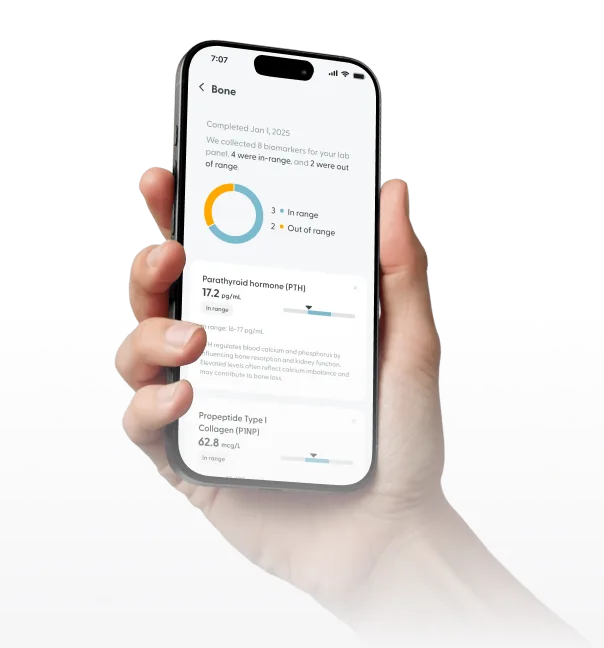Schedule
Book a telehealth appointment from wherever you are. No insurance necessary.
Achieve your weight-loss goals with GLP-1 treatments like Wegovy® and Zepbound®, guided by licensed providers every step of the way.
Personalized care for women, with HRT and lifestyle support to ease menopause symptoms and restore balance.
Simple, supportive mental health care on your terms, including access to prescription medication when appropriate.
Connect with board-certified cardiologists to help manage blood pressure, cholesterol, and long-term cardiovascular risk — from the comfort of home.
Care without the wait—connect 24/7 with licensed providers for same-day prescription refills and common concerns like colds, flu, rashes, and more.
Talk to a doctor anytime, anywhere — 24/7 urgent & primary care with a telehealth visit in under one hour.
Get your medication prescribed online and sent same-day to your local pharmacy for pickup.
Save time, money, and the hassle — no in-person visits or insurance required. Get immediate and long-term care 100% online.


Prescription treatments are tailored to your specific condition, ensuring effective relief.

Urgent evaluation is crucial to identify your condition early and prevent complications.

Accurate testing, if needed, can confirm your diagnosis and guide the best course of treatment

Licensed providers can send prescriptions to your local pharmacy within an hour, day or night.

step 1
Book a telehealth appointment from wherever you are. No insurance necessary.

step 2
Meet with a board-certified doctor or nurse practitioner from your mobile device.

step 3
Get a prescription if needed (save up to 90%), and pick it up at your pharmacy.
Bacterial vaginosis (BV) is a condition that occurs when the balance of bacteria in the vagina is disrupted, leading to an overgrowth of certain harmful bacteria. Many people confuse BV with a yeast infection. Bacterial vaginosis is an excess of certain bacteria in the vagina, whereas a yeast infection refers to too much yeast — which is a fungus — in the vagina.
Bacterial vaginosis can cause unpleasant and uncomfortable symptoms such as abnormal vaginal discharge, odor, and itching.
Getting the right treatment plan for BV can help you avoid serious health complications.
The most common bacterial vaginosis treatment is prescription antibiotics. In the past, you would have needed to visit a doctor before you could get a prescription for antibiotics.With LifeMD, you can get immediate help and antibiotic treatment online without an in-office appointment. Prescription antibiotics can treat BV and help clear the condition quickly.
Get Started Get Started
Total Cholesterol

37 mg/mL
In range

LDL (Low-Density Lipoprotein)

47 mg/mL
In range

Triglycerides

158 mg/mL
Above range

This is an antibiotic treatment for bacterial and parasitic infections that stops the growth of certain harmful bacteria and parasites.
This antibiotic is used to treat certain types of bacterial infections, including bacterial vaginosis to slow and stop the growth of bacteria.
This antibiotic treats certain intestinal and vaginal infections caused by bacteria and parasites. It can also treat some sexually transmitted infections (STIs).
“Dr. Puopolo is a very knowledgeable doctor with vast experience in different medical fields. I feel I am in good hands.”
Verified Patient

“Great experience!! Never have done online telehealth before but for sure will again :)”
Verified Patient

“Dr. Culpepper was amazing. He explained things to me that I didn’t understand.”
Verified Patient

“Dr. Sehgal was amazing! Super helpful. She was answering my questions before I even asked. Very happy I picked her.”
Verified Patient

"The appointment went great. It was quick and easy, and the doctor was right on top of things!"
Verified Patient

Reviews shown are from verified LifeMD patients across various services. Photos are for illustrative purposes only.
Bacterial vaginosis is not considered a sexually transmitted disease (STD) or a sexually transmitted infection (STI). Instead, it is a vaginal infection that most commonly affects women of reproductive age.
While the exact cause of BV is not fully understood, it is known that certain factors, such as having multiple sex partners or douching, can increase the risk of developing BV.
In addition, having BV may increase a sexually active woman's risk of contracting an STD if she has intercourse with an infected partner. Therefore, it’s important to practice safe sex and get regular check-ups with a healthcare provider to maintain good vaginal health.
Having a new sexual partner can increase your risk of developing BV. Additionally, bacterial vaginosis can spread between female sexual partners.
Female sexual partners should seek medical attention if they suspect they’ve come into contact with BV.
Usually, one round of antibiotics — taken for up to seven days — eliminates a BV infection. Once treatment starts, it typically takes five to seven days for BV symptoms to clear.
However, even if your symptoms have resolved in the first few days, it’s important to complete the entire course of antibiotics. Stopping the medication early increases your risk of developing BV again.
Some people may require more than one round of antibiotics to completely clear their infection.
Some cases of BV may resolve without medication. However, if you believe you have bacterial vaginosis, seeking medical treatment can help you find faster relief from symptoms.
BV increases your risk of contracting certain STDs and it may also affect pregnancy. Pregnant women with BV are more likely to go into preterm labor (before 37 weeks of pregnancy) and to have a low birth weight infant (generally 5.5 pounds or lower).
Additionally, if BV is left untreated, you risk developing serious health complications, including pelvic inflammatory disease (PID), which is when harmful bacteria spread from the vagina to the womb, fallopian tubes, or ovaries.
Symptoms of a vaginal infection can be uncomfortable and unpleasant. You don’t want to wait days to visit your doctor’s office for BV treatment — you want relief as soon as possible.
With LifeMD, you can consult with an online nurse practitioner or doctor to receive professional care via a video call. Since it's an online treatment, you won’t need to visit a doctor’s office to get help for BV.
If necessary, you’ll be prescribed a course of antibiotics to treat your BV. Your online nurse or doctor will then forward your prescription to your local pharmacy electronically, where you can pick up your medication and begin treatment.
We know that discussing the intimate and sensitive details of certain women’s health matters can be difficult. That’s why we’ve created a comfortable space where you can talk openly about your concerns.
Sexually active women are more at risk for developing BV. However, even women who have never had sexual intercourse can get this infection.
BV is primarily caused by an imbalance in the natural bacteria in the vagina, which can result from numerous factors other than sexual intercourse.
Other than sexual activity, the following factors can contribute to the development of BV in women who are not sexually active:
•Poor hygiene
•Hormonal changes
•Antibiotic use
•Intrauterine device (IUD) usage
•Wearing restrictive underwear
•Obesity
If left untreated, BV can lead to more serious medical complications, such as:
•An increased risk of other infections: BV makes the vagina more susceptible to other infections like STIs as the imbalance of bacteria disrupts the vagina’s protective mechanisms.
•Recurrent or chronic BV: Without treatment, BV may persist or recur regularly. Recurrent or chronic BV can result in ongoing symptoms that affect your quality of life.
•Pregnancy complications: Having untreated BV during pregnancy can cause preterm birth, low birth weight babies, and postpartum endometritis — a uterus infection after delivery.
• Developing pelvic inflammatory disease (PID): Although rare, not seeking treatment for BV can result in PID, leading to long-term complications like chronic pelvic pain and infertility.
Antibiotics are usually first-line treatment for bacterial vaginosis. The choice of antibiotic and treatment duration will vary depending on the severity of the infection and individual patient factors.
The most common antibiotics used to treat bacterial vaginosis are:
• Metronidazole (Flagyl)
• Clindamycin (Cleocin)
These antibiotics are available as an oral tablet or a cream or gel that is applied directly to the vagina. Both the oral and topical form of these antibiotics are typically prescribed for five to seven days. They work to rebalance the vaginal pH levels, which in turn restores the balance of bacteria in the vagina.
Although a yeast infection and bacterial vaginosis are not the same thing, they are both types of vaginal infections caused by different microorganisms.
Yeast infections are caused by an overgrowth of a fungus called Candida, which can be triggered by antibiotic use, hormonal changes, a weakened immune system, or unmanaged diabetes. On the other hand, BV is an infection caused by an imbalance of the bacteria that make up the vaginal microbiome.
While both infections can result in similar symptoms, they have different causes and require different treatments.

Family Medicine
4.93 stars 170 reviews


Internal Medicine
4.98 stars 178 reviews


Internal Medicine
4.92 stars 261 reviews


Family Medicine
4.94 stars 178 reviews


Hormone Specialist
4.92 stars 163 reviews
